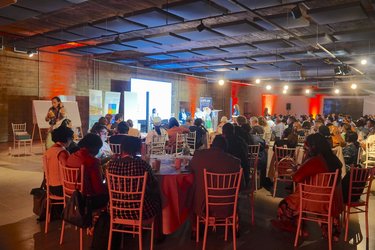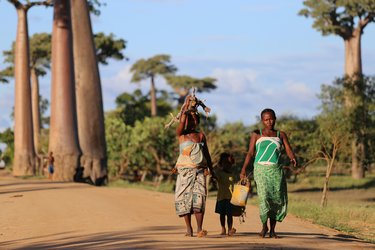
Gender Equality and Social Inclusion (GESI) is embedded within the 5 key principles of the LIFE-AR Compact which is based on the values of inclusion, participation, justice, equity and leaving no one behind.
In line with the Paris Agreement, the Sustainable Development Goals(SDGs) and Locally-Led Adaptation principles (LLA), LIFE-AR recognizes the importance of gender equality and more inclusive, meaningful participation to create more resilient people, economies and landscapes.
The impacts of climate change and climate vulnerabilities and risks are experienced by different genders in multiple ways, according to their unique identities including age, disability, socio-economic status, ethnicity, religion and belief and other characteristics. According to location and context, different people may experience varying levels of access to community assets, resources and opportunities which may also determine how far they are able to participate in decision-making spaces.
For climate resilience and adaptation strategies to be effective, it is essential to take a whole of society approach so that those who are the most vulnerable, who are often invisible, are able to contribute their ideas and solutions as active agents of change. Through greater engagement and participation of people including women, young and older people, people with disabilities, indigenous and migrant communities, and others who may be marginalized within society, a wider range of perspectives and knowledge can be drawn upon and shared for planning and implementation of more targeted and sustainable climate change solutions.
Ensuring that actors from civil society, academia, government and the private sector come together at the national and local platform levels will enable a greater number of voices and perspectives to be heard and cross-sectoral solutions to be developed for a more holistic approach.
Focusing on the engagement and participation of the most marginalized within society, and ensuring that finances can flow to reach communities and individuals who are most negatively impacted by climate change, will ensure that no one is left behind. Those who have until now had the least access to resources for effective resilience will be better equipped to respond and adapt to their own needs.
Adopting a holistic and coordinated approach to planning for climate adaptation and resilience from the local to national levels and across multiple sectors ensures that diverse voices and priorities are recognised and allows for the integration and implementation of key priorities for different groups. Understanding potential barriers from the start allows for greater synergies to be created and relationships strengthened for more effective use of resources. Engaging previously excluded groups enables their unique climate concerns to be understood by a broader range of stakeholders, fostering inclusive, gender-responsive solutions that reflect shared objectives and address the specific needs of all.
Strengthening climate capabilities through the inclusion of gender-responsive approaches such as integrating gender analysis into country planning, investments, implementation and reviewing of lessons learned is essential to developing more gender equitable and climate responsive solutions as well as ensuring that no-one is harmed or left behind.
The integration of different gender considerations and participatory approaches into governance and delivery mechanisms and decision-making processes across the LIFE-AR initiative will enable more members of the community and society to play their part and to take an active role in finding the most appropriate solutions for their context.

The following steps have been taken within LIFE-AR and will be built on and strengthened further through the test and evolve phase and the establishment of the second cohort of countries: